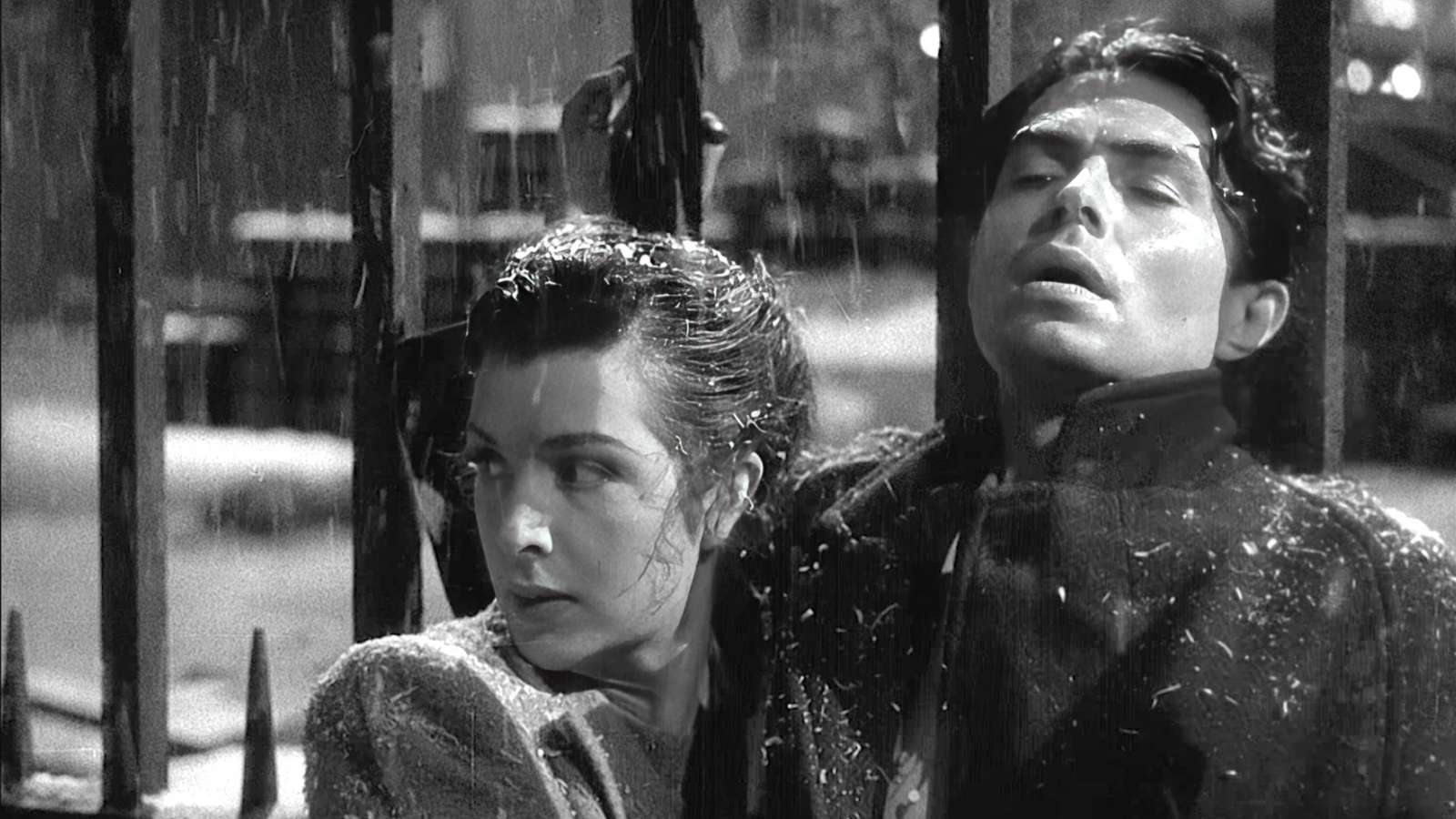
Carol Reed’s Odd Man Out is a brilliant movie about … well, that’s the question. Some people say it’s a movie about the IRA, but that’s certainly wrong, and not because the name of the organization and the name of the city in which the action is set are never mentioned. This is obviously Belfast, and the organization whose members at the outset plan a heist is obviously the IRA. But within the world of the movie doesn’t matter what cause Johnny McQueen (James Mason) serves — it never matters, to the writer or director or characters or audience.
So what is it about? I think the movie explores how people try to understand the kind of story they’re in. And Reed wants to sow confusion on that score.
The movie’s look is pure noir — and as beautifully photographed a noir as you’ll ever see, by Robert Trasker, whose work here is even better than in The Third Man, which is saying a lot — and the plot seems for quite a while to come straight out of the desperate-manhunt playbook. But for the kids on the sidewalk who pretend to be Johnny McQueen, it’s a heroic-rebel-against-the-Man story. For some of the ordinary people drawn into the event, it’s a why-can’t-I-just-live-in-peace story. For the painter Lukey (Robert Newton) it’s a great-suffering-makes-great art story. For Kathleen Sullivan (Kathleen Ryan), it’s a star-crossed-lovers story. For the scavenger Shell (F. J. McCormick), it’s an opportunity-knocks-and-I-answer story. And so on down the line.
Everyone projects their own sense of the story onto Johnny, because after the first few minutes of the movie Johnny doesn’t act; he is acted upon. Wounded, sometimes unconscious, often delirious, he becomes a kind of package passed from person to person, a problem to be solved — a mirror into which people look and learn something about themselves. Whose side are they on? — a question to be asked with the understanding that in this fractured world there are always many sides.
Meanwhile, in his moments of mental clarity, Johnny tries to understand what his story is to him. And he ends in a very different place from the one in which he begins, even if the seeds of his ending are already planted by the time we first see him.
